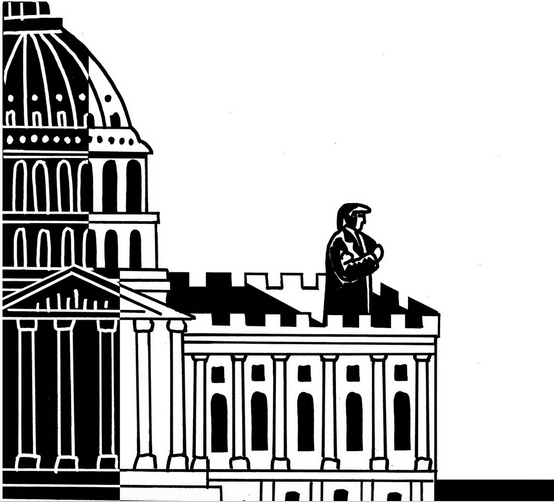Since the founding of the Republic, Congress has acted as a check on overreach by presidents and their administrations. But history will judge the current Congress as remarkable for its aggressive protection of President Trump.
The Republicans who lead key House and Senate committees have used their subpoena powers to harass administration critics, undermine the Justice Department’s inquiry into the Trump campaign’s possible collaboration with Russia in 2016 and help the president’s lawyers create an alternative narrative.
In so doing, they have perverted Congress’ traditional role as a guarantor of law enforcement that is independent from White House interference.
Congress owes much of its investigatory might to a 1927 Supreme Court decision in the Teapot Dome bribery scandal. President Warren Harding’s interior secretary was caught leasing government oil reserves in return for bribes. Attorney General Harry Daugherty, however, refused to investigate the crimes. Congress wanted to know whether Daugherty’s brother and the Ohio bank he ran had documents that shed light on the illicit payments. But Daugherty’s brother refused to testify.




